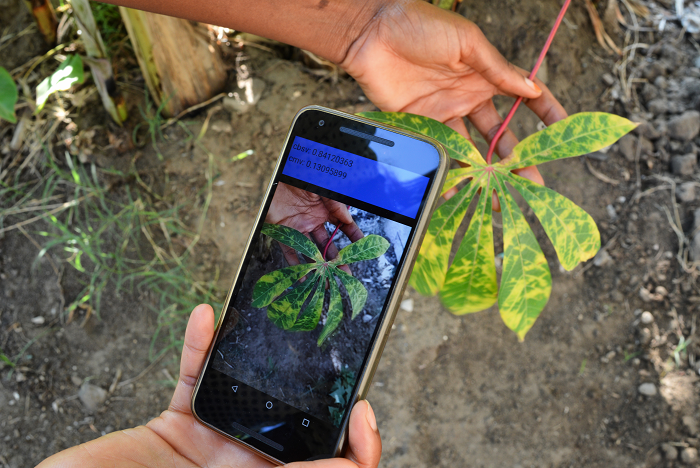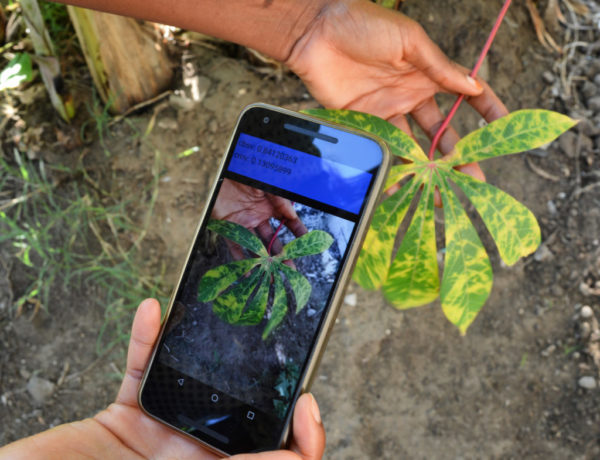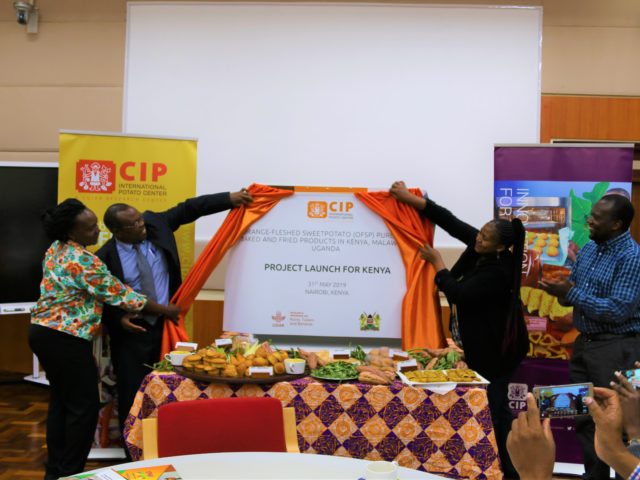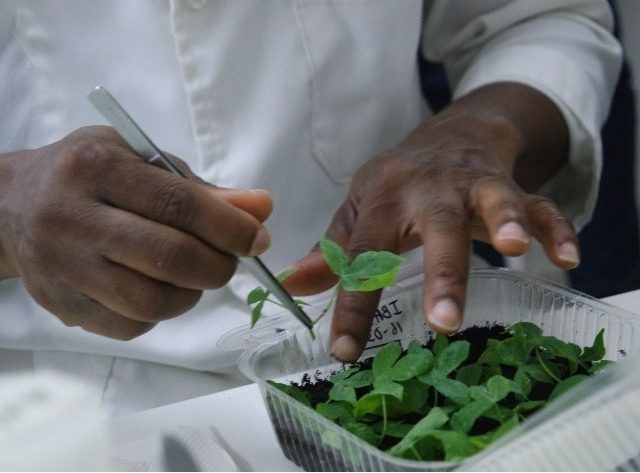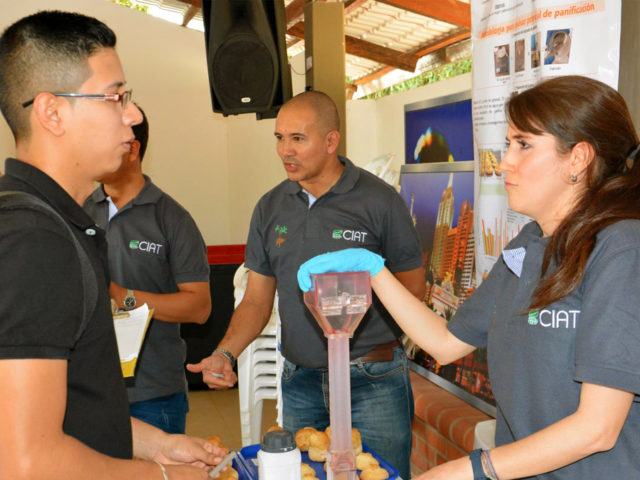Just as the late blight epidemic wiped out potato fields in Ireland in the 19th century, crop pests and diseases still have devastating effects on smallholder farmers today – with scenarios projected to worsen under climate change.
Cassava brown streak disease is spreading westward across the African continent, and together with cassava mosaic disease, threatens the food and income security of over 30 million farmers in East and Central Africa. Likewise, banana is threated by fungal and bacterial diseases and banana bunchy top virus, while sweetpotato is faced with viruses and Alternaria fungi.
Farmers are often unable to properly identify these diseases, while researchers, plant health authorities and extension organizations lack the data to support them.
To overcome these issues, a team under the CGIAR Research Program on Roots, Tubers and Bananas (RTB), are working on a revolutionary app to accurately diagnose diseases in the field, which will be combined with SMS services to send alerts to thousands of rural farmers.
The team, led by David Hughes of Penn State, and James Legg of IITA – who leads RTB’s flagship project on Resilient Crops – together with scientists from CIAT, CIP and Bioversity International, are presenting their proposal as one of 12 finalists for a $US100,000 grant as part of the CGIAR Platform for Big Data in Agriculture Inspire Challenges at the Big Data in Agriculture Convention 2017 in Cali, Colombia this week.
The concept leverages three critical advances in how knowledge is communicated to the farm level: 1) the democratization of Artificial Intelligence (AI) via open access platforms like Google’s TensorFlow, 2) the miniaturization of technology allowing affordable deployment and 3) the development of massive communication and money exchange platforms like M-Pesa that allow rural extension to scale as a viable economic model enabling last mile delivery in local languages.
Painstaking field work using cameras, spectrophotometers and drones at RTB cassava field sites in coastal Tanzania and on farms in western Kenya has already generated more than 200,000 images of diseased crops to train AI algorithms.
Using many of these images, Hughes, Legg and collaborators were able to develop an AI algorithm with TensorFlow that can automatically classify five cassava diseases, and by collaborating with Google, the team have been able to develop a TensorFlow smartphone app that is currently being field-tested in Tanzania. Penn State has also developed a mobile spectrophotometer through a start-up called CROPTIX. Early results suggest it can accurately diagnose different viral diseases in the field, even if the plant looks healthy.
“The concept leverages RTB’s global network across multiple crops for testing and scaling with national partners and the private sector in all three continents where we work. This technology will enable small-scale farmers to quickly take action and stop the spread of pests and diseases in their farms, protecting these critical sources of food and income security,” said Graham Thiele, RTB Program Director. “We are really excited about this initiative and delighted to be teaming up with Penn State,” he added.
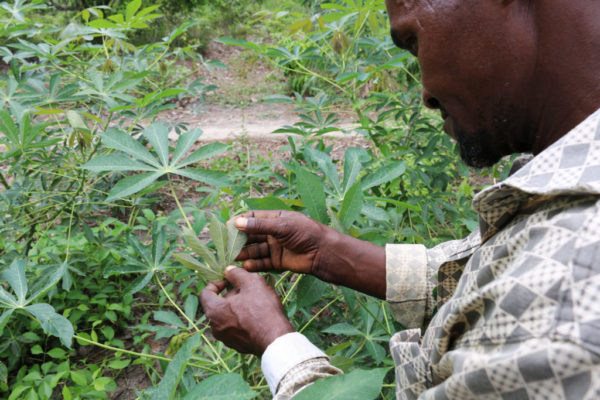
A Tanzanian farmer examines his cassava plants for the presence of pests and disease. Photo H.Holmes/RTB
The project team has already developed linkages with the Vodafone agriculture SMS platform called DigiFarm, which positions them strategically to link digital diagnostics to large-scale rural text messaging services. The team will deliver farmer tailored SMS alerts on crop diseases and pests to 350,000 Kenyan farmers by July 2018.
Once the diagnostic and SMS systems are up and running, their impact will be determined by assessing how rapid disease diagnosis increases yield in cassava value chains in Kenya involving 28,000 farmers.
An existing platform housed by Penn State (www.plantvillage.org) will enable real time discussions of disease and pest diagnoses across the CGIAR community and with other experts to enhance SMS alerts from the DigiFarm platform.
It’s is envisaged that these innovations, initially piloted in East Africa, will provide a model that can be extended to the range of locations where RTB works, and in so doing impact the farming and livelihoods of hundreds of millions of farmers.
